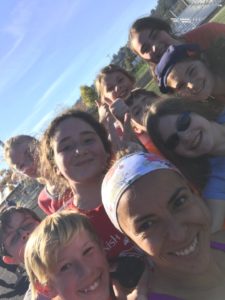La Lectura
This week in literacy, our conceptual theme was: Living in a Dynamic Planet. In connection to science, the focus question was : How do natural forces influence and affect the Earth? We read the piece El monstruo de la montana, and discussed the different non-fiction/ expository features. We also discussed how authors use different literary devices to make writing more appealing to the reader (figurative language).
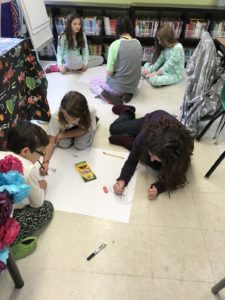 Other objectives this week included:
Other objectives this week included:
• Identify key characteristics of expository texts and different sources of media.
• Define the theme or main idea of a text and how these are transmitted through certain specific details.
• Summarize the text without giving opinions or personal judgments.
• Cite relevant evidence from the text to explain thinking, both in oral and written form.
• Demonstrate understanding of figurative language, of the relationships between words and nuances in the meaning of words.
• Interpret the figures of language (for example: personification, metaphors and other tropes) in context.
• Correctly use the written accent according to the tonic accent in words at the grade level applying a systematic analysis (Enclitic Pronouns)
• Read grade level poetry and prose orally with accuracy, appropriate rhythm and expression in progressive readings.
• Identify main and subordinate clauses.
We had so much fun getting together for our literature studies, Esperanza renace. Sadly, our book club will be coming to an end next week. We will have our last discussion on Tuesday, October 16th, where students are expected to share their final book art projects.
**Reminder** Due to not having classes on Friday, please remind your children they will be having their spelling and grammar quiz on Monday. Thank you!
Ciencias
• Observe milkweed bugs. Monitor changes that yield information about their life cycle and reproduction.
• Analyze and sort images on cards to determine which represent individuals, populations, communities, and ecosystems.
• Identify biotic and abiotic elements in an ecosystem.
• Accurately apply scientific terminology and vocabulary in oral and written form.
Mathematics
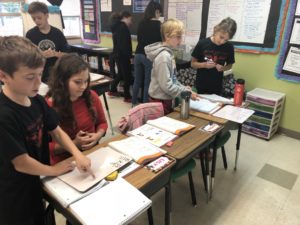
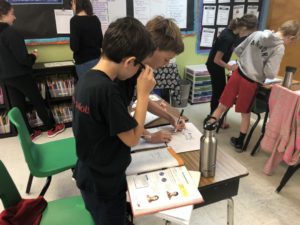 This week we began Chapter 3 Multiplying and Dividing Fractions and Decimals. Our objectives were:
This week we began Chapter 3 Multiplying and Dividing Fractions and Decimals. Our objectives were:
- demonstrate understanding of Negative Numbers and the Number Line on the chapter test
- recall prior knowledge of adding and subtracting decimals and multiplying fractions by fractions
- divide a fraction, whole number, or mixed number by a fraction or a mixed number
History & Geography
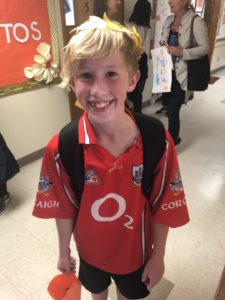
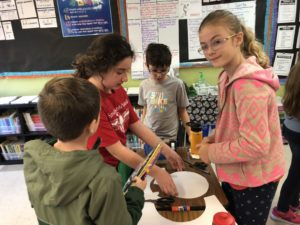 This week we continued learning about Ancient Greece and Rome. Our objectives were:
This week we continued learning about Ancient Greece and Rome. Our objectives were:
- explore excerpts from Homer’s Iliad and The Odyssey
- understand the importance of athletics and physical competition to ancient Greeks
- describe the Olympic truce, events, prizes, and legacy
English Writing & Spelling
Our objectives for writing were:
- understand how to engage and orient the read by establishing a context and introducing a narrator and characters
Our Greek and Latin roots this week were:
- clam: to cry out
- clud, clus: to shut
- cogn: to know
Our roots quiz will be on Monday October 15th.
Specialists
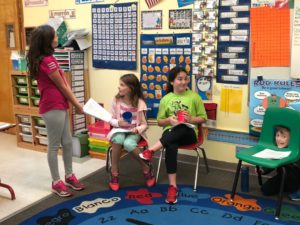
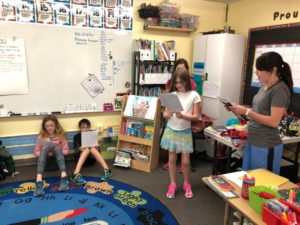 Character Education with Ms. Jennie
Character Education with Ms. Jennie
This month we are focusing on the theme of responsibility. We are talking about what this means in practical terms and of course it includes everything from helping our parents/families and doing our schoolwork to taking responsibility for our mistakes by telling the truth, apologizing, and accepting the consequences (no excuses, blame-shifting, etc.). We are continuing to read Number the Stars and have tied our theme of responsibility into our discussions about the story. Are we responsible for the safety of others? Would you feel responsible to protect a friend or even a stranger in a time of great danger or difficulty? We also did Reader’s Theatre (photos) of Chapter 1. The kids did so awesome at re-enacting this.

